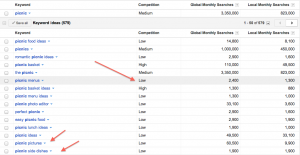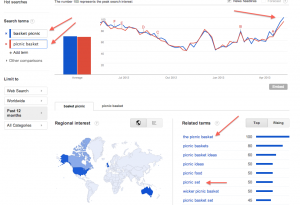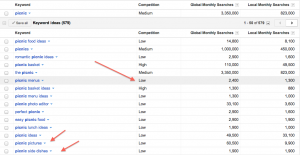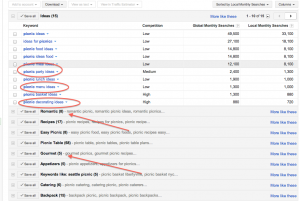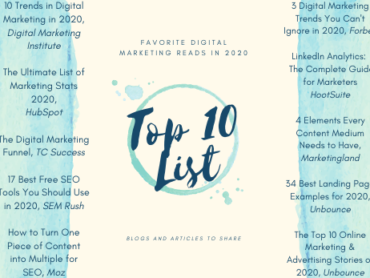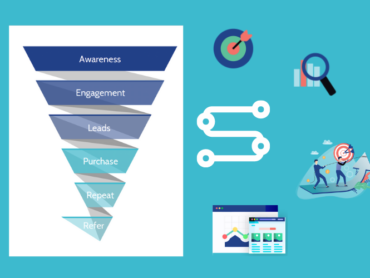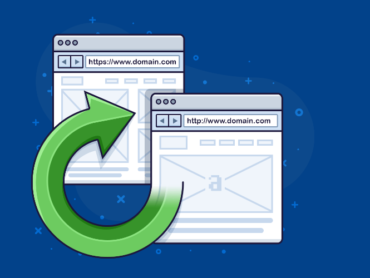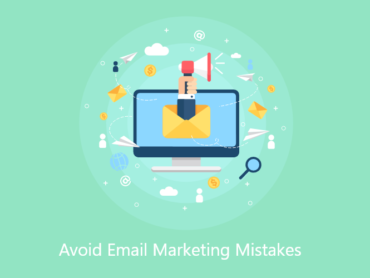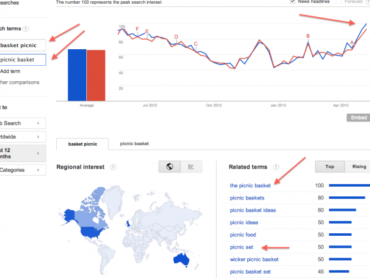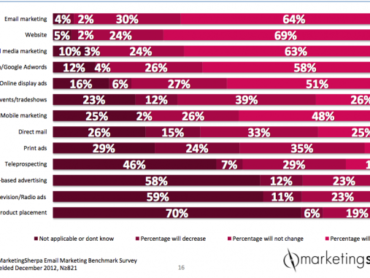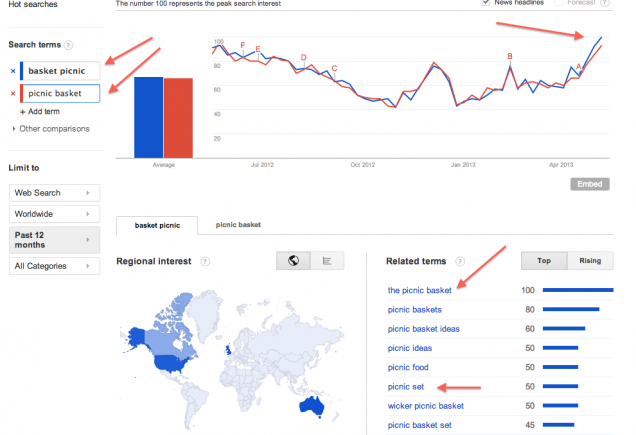
What are keywords? And how do I use them?
You may have heard the term “keywords” used in conversation and although you have a general understanding – you know that “keyword” is the term to describe what searchers type into the search bar in Google or other search engines – but beyond that, you aren’t sure what to do with them. What are keywords? “How are they used?” and “What am I supposed to do with them?”
Good News About Keywords –
They aren’t rocket science and you can use them right away. Once you know a few basics, you can apply this very powerful tool to help you draw more traffic to your site, convert that traffic to leads and convert your leads to sales. Interested? I thought so.
Three ways keywords make your marketing more effective.
1) Keywords can tell you how your customers think about your product or service. Knowing this helps you organize your site navigation so they easily find what they are looking for (which keeps them interested, trust you and makes them more likely to buy from you.)
2) Keywords can tell you the language your customers use when talking about, thinking of, or researching your products. This helps you name your product or services and use words that your customers relate to when describing your services. This makes it easier for them to understand you, follow you and builds an affinity between you and them (which keeps them interested, trust you and makes them more likely to buy from you.)
3) Keywords can tell you what your customers’ problems and questions are in relation to your area of expertise. This helps you provide content that solves your customer’s problem, and answer their questions (which keeps them interested, trust you and makes them more likely to buy from you.)
OK, Now that you know how useful they can be, let’s look at some tools and examples. In order to get started, you can use a free, easy to use tool called Google Adwords.
How to use Google Adwords as keyword tool.
Let’s say you have a site about picnics. You blog about how to have a fun picnic, how to plan for picnics, where to go for picnics, who to invite, what to bring, etc. You also have a web store that sells items for picnics.
Let’s go over to Google Adwords and type in the word “picnics.”
Type the word Picnic in the search box.
1) Let Google show you how customers think about picnics.
Google Adwords organizes major topic areas for you. These are called “Ad Groups.” Here Google organizes individual keywords into like categories for you. Since they have lots and lots of data to analyze, they sort words into groupings that match the users intent and interest for you. Looking at these Ad Groups can give you some ideas of the ways that people think about picnic items.
Major categories under the search term “picnic.”
Looking at this screen shot, we can see that they way those users think about, organize into groups and search for picnic items. Organizing your own site architecture in this way will help people find you, and to match the way they think about picnic items. Perhaps you should have tabs on your main navigation for “Picnic Ideas” “Recipes” and “Catering” in order to follow your customers’ way of thinking.
2) Let Google show you what language your customers use for picnics.
In organizing your site, you are thinking of all things picnic. One of your most popular items is the “picnic basket.” Therefore you have a category called “Picnic Baskets” and even a few blog posts with that keyword in them. However, you would be missing a major opportunity. Because as it turns out, many customers, when searching for that item, start with the premise of a basket and then modify that with picnic. Making the term “Basket Picnic” rather than “Picnic Basket.” Using the term both ways, will give you additional opportunities to be found on searches.
In addition to that, in Google Adwords Keyword tool, if you click on the word “Basket Picnic” you can dive deeper and see the seasonality of the word and break it down further into how people are using it. Google gives the term “The Picnic Basket” top rating. You can use all of the versions in your writing.
Notice that the competition for “picnic menus” is low, providing you the chance to purchase this keyword and point to a very targeted landing page on Picnic menus” for a lower cost.
This is just one example. Scroll through the list and you will discover other words such as “picnic photo,” “company picnic,” and “picnic party” that you may not have come up with on your own, but that your potential customers are using.
3) Let Google Tell you what problems your customers have about picnics.
A quick glance at this list tells me that they have a problem with ideas for food, menu, parties, and decorating. They also want help making picnics “romantic” and “gourmet.”
You can create a solution for their problems by structuring your own expertise in a helpful manner. How about articles such as:
- “Ten great ideas to make your picnic a success.”
- “Favorite Picnic Foods.”
- “Menus for a picnic.”
- “How to create a romantic picnic.”
By solving problems and answering questions, you are likely to draw your visitors in, and then your products are there in context as part of the solution. Provide answers –> solve –> problems –> make friends –> and then sell products.
Understanding keywords – what they are, how to find them and how to use them in your marketing strategy – is like having a way to read your customer’s minds. Once you come to see them in this way you can make them foundational to the way you think about your content and make it work for your customers. See your site through their eyes.
Of course there are lots of posts out there on using keywords in more traditional ways. Here are just a few:
- Keywords are used in PPC Campaigns when deciding which phrases to purchase ads for.
- They are used when optimizing you website and blog so your target audience can find you.
- They are used when tagging and optimizing your internal content so that your own site visitors can locate content in the internal search box on your website.


